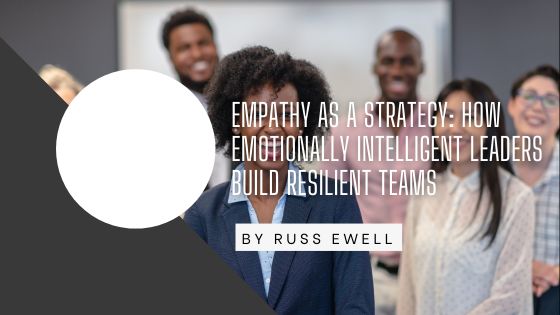 In today’s rapidly changing work environments, resilience has become one of the most sought-after traits in teams. But resilience doesn’t emerge by chance—it’s cultivated. One of the most powerful tools leaders can use to build resilient, high-performing teams is...
In today’s rapidly changing work environments, resilience has become one of the most sought-after traits in teams. But resilience doesn’t emerge by chance—it’s cultivated. One of the most powerful tools leaders can use to build resilient, high-performing teams is...
 Leadership has long been associated with strength, confidence, and decisiveness. Many believe that to lead effectively, one must project an image of unwavering control. However, modern leadership research and real-world experiences suggest otherwise. The most...
Leadership has long been associated with strength, confidence, and decisiveness. Many believe that to lead effectively, one must project an image of unwavering control. However, modern leadership research and real-world experiences suggest otherwise. The most...
 In a traditional corporate hierarchy, mentorship typically flows from experienced senior leaders to junior employees. However, reverse mentorship—where junior team members guide senior leaders—is gaining traction as a transformative practice in modern workplaces. This...
In a traditional corporate hierarchy, mentorship typically flows from experienced senior leaders to junior employees. However, reverse mentorship—where junior team members guide senior leaders—is gaining traction as a transformative practice in modern workplaces. This...
 Leading a non-profit organization presents distinctive challenges that differ significantly from those faced by leaders in the for-profit sector. Non-profit leaders must navigate complex dynamics, balancing their organizations’ mission-driven goals with...
Leading a non-profit organization presents distinctive challenges that differ significantly from those faced by leaders in the for-profit sector. Non-profit leaders must navigate complex dynamics, balancing their organizations’ mission-driven goals with...
 Feedback is a crucial component of leadership development. It serves as a powerful tool for growth, self-awareness, and skill enhancement, enabling leaders to refine their strategies, behaviors, and interactions. Understanding the role of feedback in leadership...
Feedback is a crucial component of leadership development. It serves as a powerful tool for growth, self-awareness, and skill enhancement, enabling leaders to refine their strategies, behaviors, and interactions. Understanding the role of feedback in leadership...





